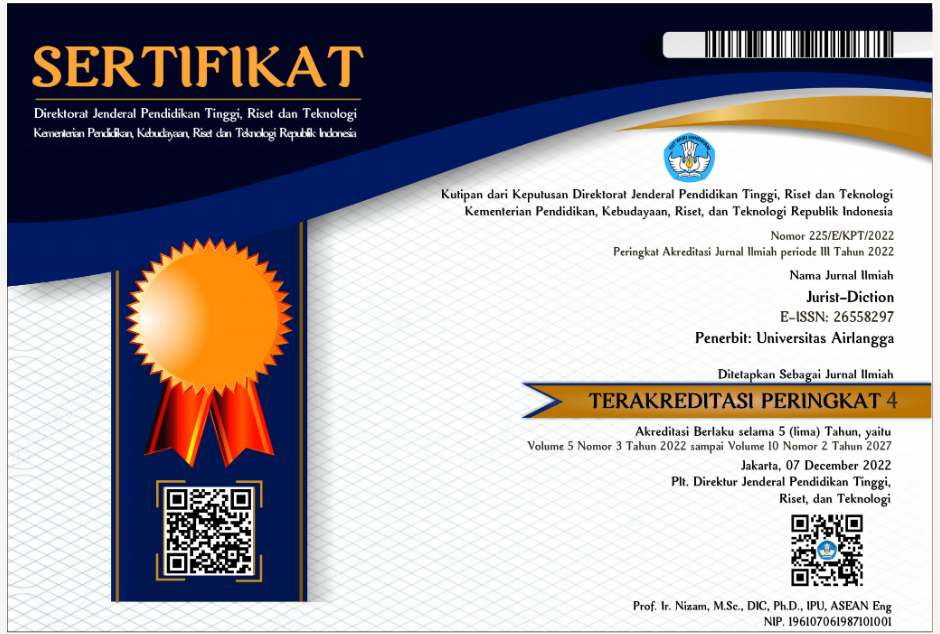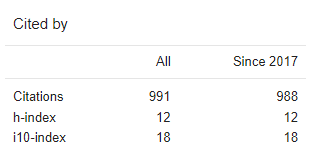Kebijakan Bea Masuk Impor Barang E-commerce Dalam Kaitannya Dengan Hukum Persaingan Usaha
Abstract
The government made Law Number 5 of 1999 concerning the
prohibition of monopolistic practices and unfair business competition
to regulate business actors in carrying out activities related to buying
and selling in the market. The birth of this regulation provides a limit for
business actors to create healthy business competition. The presence
of a platform for online shopping also makes trading activities easier
today. The development of this shopping style also affects the number
of imported goods that enter Indonesia. There is a policy regarding
the setting of the value for import duties on imported goods which has
increased from the previous one. The change in the value of this import
duty is a step by the government to protect domestic business actors.
Keywords: Law; Bussiness competition; Policy; Import.
Abstrak
Pemerintah membuat Undang – Undang Nomor 5 tahun 1999 tentang
larangan praktek monopoli dan persaingan usaha tidak sehat untuk
mengatur pelaku usaha dalam melakukan kegiatan yang berkaitan
dengan jual beli didalam pasar. Lahirnya peraturan ini memberikan
batasan bagi pelaku usaha agar menciptakan persaingan usaha yang
sehat. Hadirnya platform untuk berbelanja online juga mempermudah
kegiatan perdagangan saat ini. Berkembangnya gaya berbelanja ini
juga berpengaruh terhadap banyaknya barang impor yang masuk ke
Indonesia. Terdapat kebijakan mengenai pengaturan besaran nilai bagi
bea masuk barang impor yang mengalami kenaikan dari sebelumnya.
Berubahnya nilai bea masuk ini sebagai langkah pemerintah
melindungi pelaku usaha domestik.
Kata Kunci: Hukum; Persaingan Usaha; Kebijakan; Impor
-
Copyright (c) 2021 Adelia Rizky Windyaka

This work is licensed under a Creative Commons Attribution 4.0 International License.
Jurist-Diction (P-ISSN 2721-8392, E-ISSN 2655-8297), published by Universitas Airlangga, is licensed under the Creative Commons Attribution 4.0 International License (CC BY 4.0).
This license permits users to:
- Share – copy and redistribute the material in any medium or format;
- Adapt – remix, transform, and build upon the material for any purpose, including commercial use.
These freedoms are granted under the following conditions:
Attribution – You must provide appropriate credit, include a link to the license, and indicate if any changes were made. This may be done in any reasonable manner, but not in a way that suggests the licensor endorses you or your use.
No additional restrictions – You may not apply legal terms or technological measures that restrict others from exercising the rights granted under the license.
Note: As of Volume 5, No. 1 (2022), Jurist-Diction has adopted the Creative Commons Attribution 4.0 International License (CC BY 4.0), replacing its previous license (CC BY-NC-SA).


















